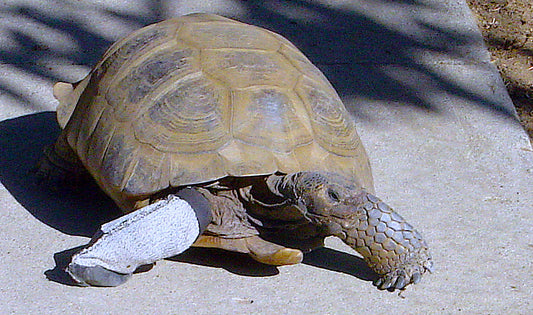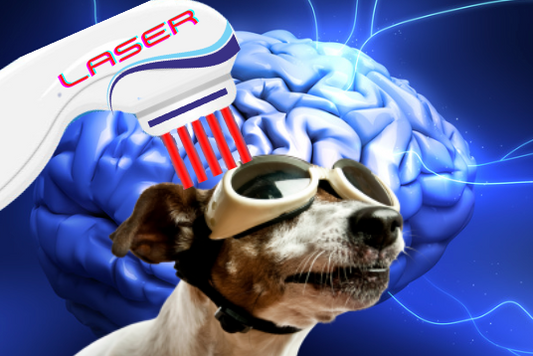It’s important to be able to discuss both the positive and negative aspects of these types of diets with your clients so they are knowledgeable about the nutrients their pets need for optimal health. Due to the complexity of some patients’ health care needs, general practitioners may consider referral to a veterinary nutritionist as needed.
Raw meat–based diets
Some raw meat–based diets (RMBDs) are marketed as “complete and balanced,” and meant to serve as the sole source of nutrition without supplementation of other proteins into the diet.
Others are not marketed as complete or balanced, so they are typically fed as a rotation product rather than as the main diet. Both of these diet types are available commercially in fresh, frozen, and freeze-dried forms. In addition, pet owners can purchase individual raw diet ingredients rather than a branded diet.
Most clients feeding their pet a raw diet use a combination of RMBDs and traditional ingredients (eg, yogurt, eggs).1 This allows for supplemental feeding of carbohydrates, fiber, vegetables, and other sources of nutrition the pet needs.
Potential advantages
In a 2019 survey study, 94% of 218 dog owners who fed their pets RMBDs named a shinier coat, increased muscle mass, and cleaner teeth as the primary improvements observed in their pets.2 These owners, the majority of whom used the internet as their primary source of information about RMBDs, said they believe raw foods are “absolutely safe” for dogs.
There are no scientific data to support the proposed benefits of feeding an RMBD over commercial kibble or a homemade diet. Data comparing raw vs. cooked meals in performance dogs showed a difference of less than 1% in protein availability.1There is some published evidence of increased digestibility of specific raw diets compared with other specific diet types, but the practical advantage of this is unclear.1,3
Safe handling of RMBDs
According to the Centers for Disease Control and Prevention, about one in six Americans becomes sick each year from contaminated foods or beverages, and 3,000 die.14 Pets fed an RMBD may shed bacteria in their feces for up to 2 weeks after eating a contaminated product.
The risk to owners who feed RMBDs to their pets is highest when storing and handling the food, handling the pet’s feces, and using kitchen equipment to prepare pet meals.7 Because many owners are unaware of the risks involved, it is important to discuss them, especially when there are children, elders, or immunocompromised people living in the home. Pet owners should follow these guidelines7:
- Keep all RMBD products frozen until use.
- Thaw RMBD products in the refrigerator (maximum temperature of 50 °F), not on the counter.
- Handle all RMBD products separately from food for human consumption.
- Avoid kissing the pet after feeding.
Disadvantages
Because RMBDs do not undergo proper treatment to reduce pathogenic organisms, the biggest concern surrounding them is the bacterial load they carry. Additionally, slaughter during feed processing poses a risk for high bacterial transmission as well. As a safety precaution, many veterinary practices segregate hospitalized pets on RMBDs from the rest of the patient population. Some hospitals refuse to store or handle RMBDs at all.
The presence of zoonotic bacterial and parasitic pathogens in RMBDs may be a source of infection for both pets and their owners. The pathogens found most commonly in a 2018 study were Escherichia coli, and Clostridium, Salmonella, Campylobacter, and Listeria spp.4
In a 2019 study, the most common bacterial overload in RMBDs was that of Enterobacteriaceae, followed by Clostridium perfringens, Salmonella, and Cambylobacter.5 These researchers identified several studies that found pathogenic bacteria in RMBDs did not pose a risk to the canine immune system, unless the immune system becomes compromised by some other mechanism.5 Other studies report that this is a myth, however, and that animals repeatedly exposed to diets high in bacteria will and have become compromised and sick.
Because there is insufficient published evidence to support feeding RMBDs, many veterinary nutritionists do not recommend them, particularly for young pets and those that are immune compromised. Concerns about feeding an unbalanced and incomplete diet remain at the forefront of most research.
Homemade diets
Owners may choose to feed their pets a homemade diet for a number of reasons, including mistrust of commercial diets. These diets may also be recommended by nutritionists for patients with comorbid conditions, including chronic kidney disease, diabetes mellitus, gastrointestinal disease, and cancer. Rechecks are often recommended 1 month after introducing a homemade diet, and any modifications should be reviewed with the veterinarian for best success.6
Homemade pet food recipes can be found online, in magazines and books, and from veterinarians themselves.6 As with RMBDs, most pet owners get their guidance about homemade pet foods from non-veterinary sources.6 Unless they are formulated properly, however, homemade diets may not provide balanced and complete nutrition for the pet. Proper formulation relies on the provider and the owner preparing the food.6
Potential advantages
The advantages of feeding homemade diets are seen primarily in patients with conditions for which gut health is of most importance, such as chronic diarrhea or vomiting, diabetes, and cancer. In some cases, feeding a homemade diet has been noted to strengthen the human-animal bond.7 Client discussions about these diets should focus on the importance of essential nutrients (protein, fat, minerals, trace minerals, and vitamins). In cats, taurine should be supplemented as well.6 Neither cats nor dogs require carbohydrates, although carbohydrates may serve as a source of energy and help improve gastrointestinal health. Gut health is often what interests pet owners about homemade diets.6
Disadvantages
An analysis of 200 published home-prepared recipes for adult maintenance in dogs written by both veterinarians (64.5%) and non-veterinarians (35.5%) revealed at least one essential nutrient deficiency, according to National Research Council (NRC) or Association of American Feed Control Officials (AAFCO) guidelines, in the majority of diets.8 Another study of 27 homemade recipes for dogs with cancer found that none met all NRC or AAFCO nutrient recommendations for adult maintenance.9
Nutritional secondary hyperparathyroidism has been reported in both cats and dogs consuming unbalanced homemade diets; clinical signs include spontaneous fractures, muscle twitching, seizures, and limb deformities.10,11 The nutrients that have been noted most frequently to be absent in homemade diets include calcium, phosphorus, and vitamin D, the lack of which may cause tetanic seizures, hyperthermia, and humeral osteochondritis dissecans.12 Due to their rapid growth, puppies and kittens are generally more susceptible to nutrient deficiencies than are older dogs. Owners should be advised to consult with a veterinary nutritionist regarding proper formulation of homemade diets, particularly for pets with chronic or terminal illness.12
Vegan diets
In the United States, about a quarter of vegan pet owners are interested in making a similar dietary change for their pets.13 Providing a complete and balanced vegan diet for pets can be challenging, however, because it requires that plant-based protein sources be fed to animals that rely on carnivorous proteins.
Disadvantages
There are no real advantages to feeding dogs or cats a vegan diet because these diets may be deficient in a number of nutrients these pets need. In a study published earlier this year, four commercial vegan diets (three for dogs and one for cats) were found to be deficient to varying degrees in calcium, potassium, phosphorus, protein, and arginine.13
Taurine deficiency was observed in the diets due to the high concentration of soybean meal. Whether this may lead to such cardiac abnormalities such as dilated cardiomyopathy is currently being studied. In addition, plant-based proteins have been shown to have lower digestibility compared with animal proteins, although this was not studied in this paper.
Some of the diets studied had copper and zinc concentrations higher than the limits allowed by the AAFCO and NRC. Copper transition can sometimes lead to oxidative damage such as liver cell abnormalities or cell death. One diet had iron supplementation above European Pet Food Foundation upper limits.13
Low calcium levels and a calcium-to-phosphorus ratio below the minimum recommendation may result in secondary nutritional hyperparathyroidism in dogs and cats; none of the diets studied met the minimum requirements for this ratio.13This is a very important consideration to make when feeding young and growing animals as well.
Conclusion
For owners interested in feeding their pets a raw, homemade, or vegan diet, it is incumbent on veterinarians to review the formulation for nutritional adequacy, advise the client, and/or refer the client to a veterinary nutritionist. Ask about feeding at home and educate owners about changes that may be needed to help create a healthy lifestyle for their pets. Based on available evidence, vegan, raw, and homemade diets are not recommended for long-term use in pets at this time. Further study is needed with regard to diet formulation and ingredient substitution.
Author: Lynsey Rinelli, DVM
References
1. Larsen J. Raw food diets for cats and dogs. Presented at: American College of Veteirnary Internal Medicine Forum; 2018; Seattle, WA.
2. Morelli G, Bastianello S, Catellani P, et al. Raw meat-based diets for dogs: survey of owners’ motivations, attitudes and practices. BMC Vet Res. 2019;15, 74. https://doi.org/10.1186/s12917-019-1824-x
3. Schlesinger DP, Joffe SJ. Raw food diets in companion animals: A critical review. Can Vet J. 2011;52(1):50-54.
4. van Bree FPJ., Bokken GCAM, Mineur R, et al. Zoonotic bacteria and parasites found in raw meat-based diets for cats and dogs. Vet Rec. 2018;182(2):50.
5. Hellgren J, Hästö LS, Wikström C, et al. Occurrence of Salmonella, Campylobacter, Clostridium and Enterobacteriaceae in raw meat-based diets for dogs. Vet Rec. 2019;184(14):442. doi:10.1136/vr.105199
6. Cline MG. Home prepared diets for health and disease. Presented at: Atlantic Coast Veterinary Conference; 2017; Atlantic City, NJ.
7. Burns KM. Alternative and raw food diets. Presented at: American College of Veteirnary Internal Medicine Forum; 2012; New Orleans, LA.
8. Stockman J, Fascetti AJ, Kass PH, Larsen JA. Evaluation of recipes of home-prepared maintenance diets for dogs [published correction appears in J Am Vet Med Assoc. 2014 Jul 15;245(2):177]. J Am Vet Med Assoc. 2013;242(11):1500-1505. doi:10.2460/javma.242.11.1500
9. Heinze CR, Gomez FC, Freeman LM. Assessment of commercial diets and recipes for home-prepared diets recommended for dogs with cancer. J Am Vet Med Assoc. 2012;241(11):1453-1460. doi: 10.2460/javma.241.11.1453
10. Tomsa K, Glaus T, Hauser B, et al. Nutritional secondary hyperparathyroidism in six cats. J Small Anim Pract. 1999;40(11):533-539. doi:10.1111/j.1748-5827.1999.tb03015.x
11. Kawaguchi K, Braga IS, Takahashi A, et al. Nutritional secondary hyperparathyroidism occurring in a strain of German Shepherd puppies. Jpn J Vet Res. 1993;41(2-4):89-96.
12. Hutchinson D, Freeman LM, McCarthy R, et al. Seizures and severe nutrient deficiencies in a puppy fed a homemade diet. J Am Vet Med Assoc. 2012;241(4):477-483. doi:10.2460/javma.241.4.477
13. Zafalon RVA, Risolia LW, Vendramini THA, et al. (2020) Nutritional inadequacies in commercial vegan foods for dogs and cats. PLoS ONE. 15(1): e0227046. https://doi.org/10.1371/journal.pone.0227046
14. CDC and Food Safety. Centers for Disease Control and Prevention. Published June 25, 2020. Accessed August 2, 2020. https://www.cdc.gov/foodsafety/cdc-and-food-safety.html#:~:text=CDC%20estimates%20that%201%20in,than%20%2415.6%20billion%20each%20year






